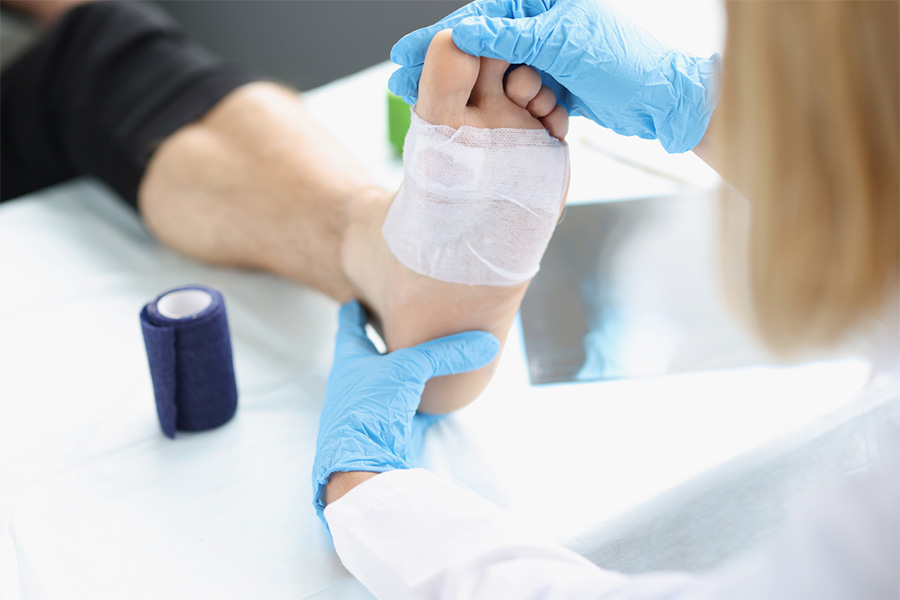Foot ulcers are open wounds or sores that either don’t heal or are recurrent. If you are diabetic, you are especially prone to developing foot ulcers, which is worrying because more than 50 percent of diabetic foot ulcers get infected, and 20 percent of infected foot ulcers result in amputation.
But what causes foot ulcers, and why are diabetics prone to developing them? If you are diabetic, the information here may help you understand why you should be extra careful with your foot care.
Elevated Blood Sugar
Diabetics have blood sugar levels that are out of the normal range. Imbalanced glucose levels are problematic because elevated glucose levels can narrow your blood vessels and arteries. This condition causes poor blood and oxygen flow which your body needs in the wound healing process.
Poor Circulation
With diabetes, you are prone to blood circulation issues, which increases your chances of developing peripheral arterial disease. As a result, blood flow to your lower extremities is restricted. For this reason, diabetics are vulnerable to developing foot ulcers that do not heal properly. The condition can turn chronic, which could very well lead to infection and the risk of amputation.
Nerve Damage
High blood sugar levels can lead to nerve damage or neuropathy. One of the side effects of nerve damage is a loss of feeling or sensation in the area. For instance, if you are wearing shoes that are a poor fit or if you injure your foot, you may not notice it for a while if you’ve lost sensation in parts of your foot. Therefore, if you have a wound, blister, or sore on your foot, you can go about your day or night unaware, which can lead to infection.
Infection
With diabetes, your immune system is compromised. Your body’s ability to heal wounds is also weakened. This makes you prone to developing infections. Being a diabetic, you should always be on guard against infections to protect yourself from illnesses.
Preventing and Treating Diabetic Foot Ulcers
While you may be prone to developing diabetic foot ulcers, it doesn’t mean your hands are tied when it comes to preventing them. In this case, the best strategy is prevention. If you work with a podiatrist that specializes in the prevention and treatment of diabetic foot ulcers, you can avoid complications and the risk of amputation. A podiatrist can guide you in the proper care of your feet according to your unique needs.
Diabetic Foot Care in Cincinnati
Our podiatrists at Cincinnati Foot and Ankle care specialize in diabetic foot care, particularly foot infections and ulceration treatment. Diabetic foot ulcers are one of the most common conditions we treat. Neurotrophic ulcers, venous stasis ulcers, and arterial ulcers all require immediate medical treatment, and it’s important that you never take chances with them by self-treating.
With proper treatment, we can stave-off an infection and make sure your foot heals properly. For your diabetic foot care needs or foot infection treatment, please contact the Cincinnati Foot and Ankle clinic nearest you. We look forward to providing you with comprehensive foot care and relief.





